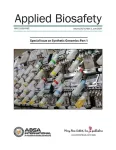(Press-News.org) Almost 4,500 healthy and symptom-free over-60s were examined, with 28pc found to have heart valve disease
Age was found to be strongly associated with an increased incidence of significant heart valve disease
Study lays the foundation for more research into the potential role of screening in the elderly population
Peer-reviewed – Prospective Cohort Study - People
The sheer scale of undiagnosed heart valve disease in our ageing population has been revealed for the first time, thanks to new research led by the University of East Anglia.
More than a quarter of healthy and symptom-free over 60s examined in the study were found to have previously undetected heart valve disease.
Co-lead author Vassilios Vassiliou, Clinical Professor of Cardiac Medicine at UEA’s Norwich Medical School, said: “This study focused on understanding how widespread heart valve issues of any severity are among healthy, symptom-free adults without any known heart diseases.
“We examined almost 4,500 individuals aged 60 and older from three regions in the UK: Norfolk, West Midlands, and Aberdeen, using echocardiography, which is an ultrasound of the heart.
“Our findings showed that more than 28pc of these adults had some form of heart valve disease, although reassuringly it was only mild in the majority of the cases.
“The data also indicated that age was the main factor associated with these heart valve problems, meaning that the older a person is, the higher their chance of having a significant valve issue.”
Blood flows around the heart and the rest of the body in one direction, like a one-way traffic system.
The four heart valves (pulmonary and tricuspid on the right side, and aortic and mitral on the left side of the heart) control the direction of the blood flow ensuring optimal pumping of the heart.
Co-lead author Prof Michael Frenneaux, of the Royal Brompton Hospital, part of Guy’s and St Thomas’ NHS Foundation Trust and Imperial College London, said: “Heart valve disease is when one or more of the heart valves do not work like they should.
“The main problems are caused by the valve not opening fully (valve stenosis) which restricts the flow of blood, or the valve not closing properly (valve regurgitation) which means blood can leak back in the wrong direction.
“These problems can put extra strain on the heart and make the heart work harder. Over time, it can increase the risk of having a heart attack, stroke and other heart conditions.”
Symptoms can include feeling breathless, chest pain, feeling weak or dizzy, swollen ankles and feet, feeling more tired than usual and chest or neck palpitations.
Between 2007 and 2016, a total of 10,000 asymptomatic patients, over the age of 60, were invited through their general practices to take part in the study, which was funded by the British Heart Foundation.
Of those, 5,429 volunteered to participate, of whom 4,237 were eligible for inclusion.
They were evaluated with a health questionnaire, clinical examination and transthoracic echocardiography, which is an ultrasound of the heart.
Heart valve disease was diagnosed in 28.2pc. The prevalence of clinically significant valvular heart disease was reassuringly only 2.4pc, with one in 42 of the over-60s found to have a moderate or severe case, rising to one in 15 for those aged 75 and older.
However, only 21pc - 900 of the 4,237 patients evaluated - were 75 or over and only 8.6pc were over the age of 80.
Prof Vassiliou said: “The diagnosis of heart valve disease mostly relies on transthoracic echocardiography, however this is normally only carried out if symptoms are reported or if an unusual murmur is heard during a physical examination.
“This can be challenging in the elderly because mild symptoms may be masked by reduced physical activity and impaired mobility.
“This study reveals that many older adults have heart valve issues, even if they don't show any symptoms and we would suggest that if people do develop any new symptoms or signs that could indicate heart disease to discuss this with their doctor.
“As our population ages, this information can help healthcare providers understand the scale of valve disease and streamline routine care methods and screening programs to ensure that we can cope with the demand in the future.
“This way, they can better identify and help those at risk before problems become serious.”
The researchers say further studies are needed to clarify the prevalence of the disease in the elderly population and how screening could be used to help identify and manage the disease.
James Leiper, Associate Medical Director at the British Heart Foundation, said: "This important research using a very large group of people without symptoms showed that over a quarter of participants had a previously undetected heart valve condition.
“Further research will be required to build on these strong foundations and develop methods to test the feasibility of disease identification in these individuals.
“Whilst we have made strides, there is still more to be done to eradicate heart disease for good. It is essential that we keep funding lifesaving research, so fewer people have to go through heart break."
The research also involved the Norfolk and Norwich University Hospital, Aberdeen Royal Infirmary, University of Aberdeen, University of Birmingham, the Royal Brompton Hospital, London, and Imperial College London.
‘Prevalence of asymptomatic valvular heart disease in the elderly population: a community-based echocardiographic study’ is published in European Heart Journal - Cardiovascular Imaging.
END
More than a quarter of ‘healthy’ over-60s have heart valve disease, according to new research
2024-06-27
ELSE PRESS RELEASES FROM THIS DATE:
Sylvester Cancer Tip Sheet - June 2024
2024-06-26
BLOOD CANCER
Sylvester Expert Endorses FDA’s Recent Cancer Drug Approval
Mikkael Sekeres, M.D., chief of the Division of Hematology at Sylvester, who specializes in treating leukemia and myelodysplastic syndromes (MDS), expressed his support for the Food and Drug Administration’s recent approval of the drug imetelstat. The drug, a telomerase inhibitor, treats cancer-related anemia in patients with lower-risk MDS. “With approval of imetelstat to treat myelodysplastic syndromes, we finally have another approach ...
Playing youth sports linked to better mental health in adults
2024-06-26
COLUMBUS, Ohio – Adults who continuously played organized sports through their youth have fewer symptoms of anxiety and depression than those who never played or those who dropped out, a new study finds.
And those who dropped out of sports had poorer mental health than those who never played at all.
But many more people drop out of youth sports than play continuously until they are 18, said Chris Knoester, senior author of the study and professor of sociology at The Ohio State University.
“If you play and stick with sports, it’s ...
Researchers find genetic stability in a long-term Panamanian hybrid zone of manakins
2024-06-26
We often think of species as separate and distinct, but sometimes they can interbreed and create hybrids. When this happens consistently in a specific area, it forms what’s known as a hybrid zone. These zones can be highly dynamic or remarkably stable, and studying them can reveal key insights into how species boundaries evolve—or sometimes blur. In a new study published in Evolution, researchers at the University of Illinois Urbana-Champaign describe a hybrid zone between two manakin species in Panama that ...
Special Issue of Applied Biosafety focuses on synthetic genomics
2024-06-26
In its first special issue on Biosafety and Biosecurity Considerations of Synthetic Genomics, the first part of a two-part special issue of the peer-reviewed journal Applied Biosafety focuses on the growing availability of customizable nucleic acid sequences and genomes from commercial sources. The issue also describes the advancements in desktop synthesis devices that enable the creation of on-demand nucleic acids. Click here to read the special issue now.
The rapid technological advancements described in part one of this two-part special issue are raising concerns among biosecurity experts and policymakers. The manuscripts in this issue explore the challenges, opportunities, and ...
Simple new process stores CO2 in concrete without compromising strength
2024-06-26
By using a carbonated — rather than a still — water-based solution during the concrete manufacturing process, a Northwestern University-led team of engineers has discovered a new way to store carbon dioxide (CO2) in the ubiquitous construction material.
Not only could the new process help sequester CO2 from the ever-warming atmosphere, it also results in concrete with uncompromised strength and durability.
In laboratory experiments, the process achieved a CO2 sequestration efficiency of up to 45%, meaning that nearly ...
Osiris 39 examines the role of disability in the history of science
2024-06-26
Disability studies has gained prominence in recent years, transforming fields ranging from design to literary studies with insurgent approaches to access and representation. The newest volume of Osiris, “Disability and the History of Science,” extends this movement to ask how disability has been a central, if unacknowledged, force in the scientific disciplines and the history of science. The volume examines the many roles that disability and disabled people have played throughout the history of science, calling attention to the shaping of scientific knowledge production by disability.
Editors Jaipreet Virdi, Mara Mills, and Sarah F. Rose, in their introduction ...
AI-based Alphafold: Its potential impact on predictive medicine
2024-06-26
AlphaFold is an outstanding example of artificial intelligence’s computational capabilities in accurately predicting intricate protein structures. A new Review article explores AlphaFold’s recent advancements and its potential impact on predictive medicine. The article is published in the peer-reviewed journal AI in Precision Oncology. Click to read the articles now.
Vivek Subbiah, MD, from the Sarah Cannon Research Institute, and coauthors, describe a shift toward predictive medicine, in which AI, integrated with genomic data, ...
A heart of stone: Study defines the process of and defenses against cardiac valve calcification
2024-06-26
CHAMPAIGN, Ill. — The human body has sophisticated defenses against the deposition of calcium minerals that stiffen heart tissues, researchers at the University of Illinois Urbana-Champaign and collaborators at UCLA Health and the University of Texas at Austin found in a new study that provides the first detailed, step-by-step documentation of how calcification progresses.
“Heart disease is the leading killer annually — about 18 million deaths per year — and that number is growing. A large proportion is the result of calcification,” said study leader Bruce Fouke, a U. of I. professor of earth ...
Understanding quantum states: New FAMU-FSU research shows importance of precise topography in solid neon qubits
2024-06-26
Quantum computers have the potential to be revolutionary tools for their ability to perform calculations that would take classical computers many years to resolve.
But to make an effective quantum computer, you need a reliable quantum bit, or qubit, that can exist in a simultaneous 0 or 1 state for a sufficiently long period, known as its coherence time.
One promising approach is trapping a single electron on a solid neon surface, called an electron-on-solid-neon qubit. A study led by FAMU-FSU College of Engineering Professor Wei Guo that was ...
Review of pathogenesis, research and treatment of amyloidosis published in New England Journal of Medicine
2024-06-26
(Boston) — AL (immunoglobulin light chain) amyloidosis is a rare disease that often results in progressive organ dysfunction, organ failure and eventual death.
Clonal plasma cells in the bone marrow secrete free light chains into circulation. These light chains are part of immunoglobulins, also called antibodies. But in this disease, light chains misfold and aggregate into amyloid fibrils that deposit in organs and tissues.
In a review article of AL amyloidosis “Systemic Light Chain Amyloidosis,” Vaishali Sanchorawala, MD, director of the Amyloidosis Center at the Chobanian & ...





